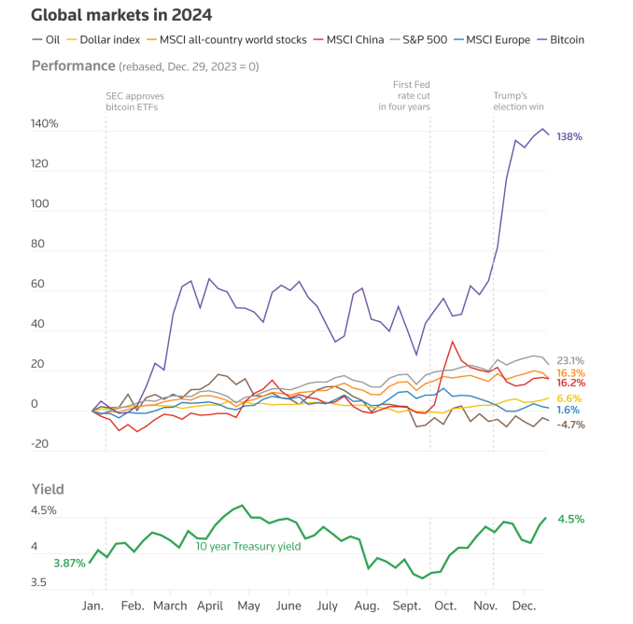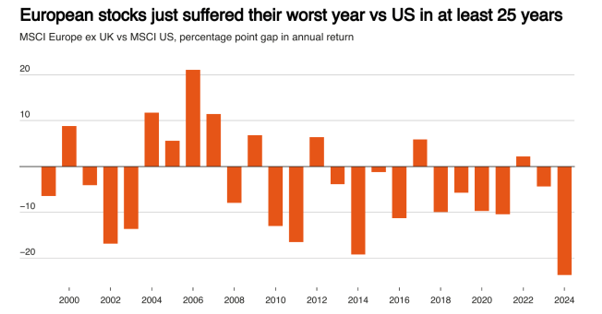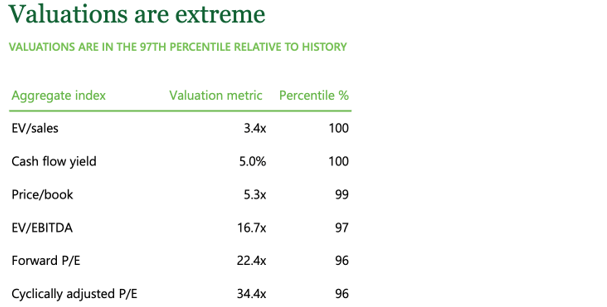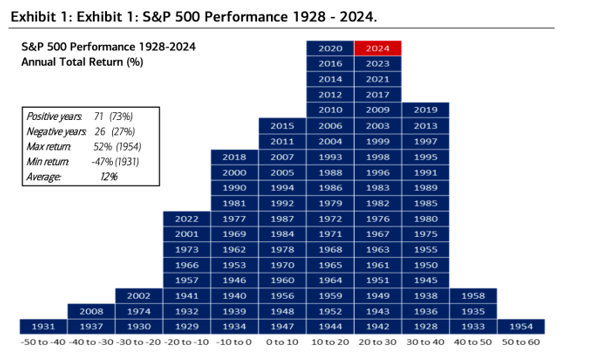LHV Pensionifond L
Suitable if
- you have average risk tolerance,
- your aim is the long-term growth of your pension savings.
Crisis-resilient flagship L
- The L fund strategy is based on the principle that a prerequisite for a proper rate of return is the ability to avoid major losses. That is why we diversify this fund’s investments across several asset classes. As the proportion of equity is moderate, the fund is less exposed to stock market movements.
- Real estate as an asset class accounts for just over 20% of the fund’s investments, providing a secure and stable cash flow in an inflationary environment. We evaluate real estate properties once per year.
- L is actively managed, which is why the risks are managed and the pension saver’s money is kept safe. Our investment team makes decisions based on thorough analysis and the economic situation.

Kristo Oidermaa
Fund Manager at LHV
„If the portfolio is diversified in terms of the money it invests, it is also possible to come out of crises with very few losses. Pension fund L has had a positive rate of return for 12 years in a row, already.“
Biggest investments
The data is presented as at 31.03.2025
| Biggest investments | |
|---|---|
| ZKB Gold ETF | 4.28% |
| Invesco MDAX UCITS ETF | 3.36% |
| Investindustrial VII L.P. | 3.33% |
| EfTEN Real Estate Fund | 2.84% |
| Partners Group Direct Equity 2019 | 2.58% |
| East Capital Baltic Property Fund III | 2.40% |
| German Treasury Bill 17/09/2025 | 2.36% |
| France Treasury Bill 25/05/2025 | 2.25% |
| Barrick Gold Corp | 2.11% |
| Ardian ASF VIII | 2.11% |
Biggest investments in Estonia
| Biggest investments in Estonia | |
|---|---|
| East Capital Baltic Property Fund III | 2.40% |
| Usaldusfond BaltCap Private Equity Fund III | 2.10% |
| East Capital Real Estate Fund IV | 1.70% |
Asset Classes
Information about the fund
| Information about the fund | |
|---|---|
| Volume of the fund (as of 31.03.2025) | 837,785,603 € |
| Management company | LHV Varahaldus |
| Equity in the fund | 1,600,000 units |
| Rate of the depository’s charge | 0.0403% (paid by LHV) |
| Depository | AS SEB Pank |
Entry fee: 0%
Exit fee: 0%
Management fee: 0,6120%
Success fee: Performance fee is 20% of the positive difference between the fund's performance and the benchmark, maximum of 2% per annum of the fund's volume.
Ongoing charges (inc management fee): 1.48%
The ongoing charges figure is an estimate based on the current management fee and the 2024 level of all other recognized costs. Ongoing charges may vary from year to year.
Terms and Conditions
Prospectus
March 2025: Stable Results Despite Tariffs
Kristo Oidermaa and Romet Enok, Fund Managers
Developed markets ended March in negative territory, anticipating a trade war escalation, which subsequently materialised in early April. The S&P 500 fell by 5.8% in dollar terms, while the European Euro Stoxx 50 declined by 3.8% in euro terms. The emerging markets index remained relatively unchanged, rising 0.4% in dollar terms. Its largest constituent, China, gained 2% over the month. The OMX Baltic Benchmark index rose by 1.6%.
In March, we increased our position in the MDAX index of German mid- and small-cap companies. The top contributors to monthly performance were our gold-related holdings, which rose between 5% and 13%, and Equinor, which gained 11%. The largest detractors were the MDAX index itself, which fell by 2.6%, Novo Nordisk, down approximately 26%, and Glencore, which declined by 13%. In recent months, we have added several positions in Germany, where we see future potential driven by growing public budget deficits, which are expected to support local equity markets.
In March, Estonian startup Blackwall (formerly Botguard) announced the successful completion of a €45 million Series B funding round. The round was led by Dawn Capital, a European venture capital firm specialising in B2B software, with participation from existing investors such as MMC and Tera Ventures. Blackwall develops AI-based security and web infrastructure solutions and already has a footprint in several regions across the globe – its software currently protects over 2.3 million websites, with plans to expand into the US and Asia in the near future.
One of our key direct investments is nearing completion, as Lithuania’s Šiaulių Bankas has announced the repayment of the bond held by LHV funds. The bond pays an annual interest rate of 6.15% and was part of our broader investment in subordinated bonds issued by Baltic banks – Coop, Citadele and Šiaulių. The first two have already redeemed their bonds earlier.
February 2025: Europe raising head
Kristo Oidermaa and Romet Enok, Fund Managers
February was quite volatile due to Donald Trump’s inauguration. The US S&P 500 index declined by 1.4% in dollars over the month. The Euro Stoxx 50 index rose by 3.4% in euros. The Emerging Markets Index gained 0.4% in dollars, with China’s market rising by 11.7%. The OMX Baltic Benchmark Index climbed 3.2% over the month.
In February, we reduced our gold and energy positions and exited our holding in Metso Corporation. We also added exposure to Germany’s mid-cap and small-cap index. Contributing the most to returns over the month were our position in Alibaba, which surged by approximately 44%; the European banking index fund, which gained about 13.5%; our gold miner, which rose by 8.9%; and Finnish energy company Fortum, which increased by 7.8%. The poorest performers which our energy holdings, which declined between 19% and 25%, and our U.S. industrial stocks, which fell between 8% and 15%. Over the past year, we have been steadily diversifying our portfolios, adding high-capital-efficiency market leaders in their niches alongside cyclical commodity companies, both in Scandinavia and the United States. Over the past month, we have also increased our exposure to Continental Europe.
EfTEN Kinnisvarafond II sold the Kaunas Terminal Logistics Complex in February to the Lithuanian asset management firm Prosperus. The transaction was valued at 18.2 million euros. The complex covers 28,737 square metres and is located in a key industrial area. Prosperus is one of Lithuania’s largest real estate investors and is known for its strategic investments in high-potential properties across the Baltic region.
January 2025: The year started strong in the stock markets
Kristo Oidermaa and Romet Enok, Fund Managers
The year started strong in developed markets. The US S&P 500 index ended January with a return of +2.7% in dollar terms, while the European Euro Stoxx index gained 8.1% in euros. The emerging markets index rose 1.7% in dollar terms, with its largest constituent, China, increasing by 0.6%. The OMX Baltic Benchmark index climbed 5.3% in euros over the month.
In January, we sold our position in Volkswagen stock, with no other major transactions taking place. The strongest contributors to returns were our gold positions, which rose 8–19%, and the European banks index fund, which gained around 11%. The biggest detractors were our position in Freeport-McMoRan, an energy metals company, which declined by 5.5%; logistics firm DSV, which fell by 6%; and Occidental Petroleum, which dropped by 5.6%. Over the past year, we have gradually diversified our portfolios, balancing cyclical commodity holdings with high-return-on-capital companies that are market leaders in their niches, both in Scandinavia and the United States.
In January, the private equity fund INVL announced an agreement to sell InMedica Group, Lithuania’s largest private clinic and hospital network, to Mehiläinen, Finland’s largest healthcare provider. The transaction will be finalised once it receives approval from competition authorities in both countries. InMedica serves more than 2.7 million patients annually across 89 facilities in Lithuania, Finland, Sweden, Germany and Estonia, generating over €150 million in annual revenue. Mehiläinen, with a 115-year history, and operations in Finland, Sweden, Germany and Estonia, aims to strengthen its position in the Baltic region, where the healthcare market is experiencing rapid growth.
Latvia’s Citadele Bank repaid its subordinated bond issued in 2017. The bond was listed on the stock exchange, but LHV pension funds remained an anchor investor throughout, as part of our 2016–2019 investments in subordinated bonds from local Baltic banks – Siauliu in Lithuania, Citadele in Latvia, and Coop and Bigbank in Estonia. Over this period, Baltic banks have expanded their businesses and market shares, while also developing a public market for their subordinated bonds. Pension funds earned strong interest from these and contributed to the growth of the local financial sector.
December 2024: Markets show signs of calming
Kristo Oidermaa and Romet Enok, Fund Managers
Following November’s “Trump rally”, December saw a slight pullback, with S&P 500 ending the month down 2.5% in dollar terms. By contrast, the Euro Stoxx 50 index rose by 1.9% in euro terms, while the Emerging Markets index was nearly flat, posting -0.3% in dollar terms. Among emerging markets, Brazil was the biggest decliner, but this was offset by China, which rose by 2.6% in dollar terms. The OMX Baltic Benchmark index also increased by 1.6% for the month.
In December, we added new names to the portfolio, including the US company United Rentals, which specialises in construction equipment rental, and Novo Nordisk, a pharmaceutical company. The strongest contributors to returns during the month were the European banks index, which rose by approximately 5.4%, Stora Enso, which gained 6.8%, and one of our energy positions, Antero Resources, which rose by 7.2%. On the downside, our gold-related positions fell between 6% and 12%, while our energy-metals holdings declined between 9% and 14%. Throughout the year, we have been steadily diversifying our portfolios, adding high-capital-efficiency companies that are market leaders in their niches across Scandinavia and the United States alongside cyclical commodity investments.
At the end of 2024, private equity funds were quite active. KJK Funds sold one of their largest investments, Don Don, a Balkan-based bakery chain, to Grupo Bimbo, a globally renowned Mexican baked-goods giant. Don Don, which began operations in 1994 in Slovenia, has steadily expanded into Croatia, Serbia, Bulgaria and several other European countries. The deal provided Grupo Bimbo with access to new markets.
In the bond portfolio, Citadele Bank announced to the stock exchange that it plans to redeem its subordinated bond issued in 2017 in January. This news fittingly concluded a year during which the fund exited several bond investments both in Estonia and across European markets.
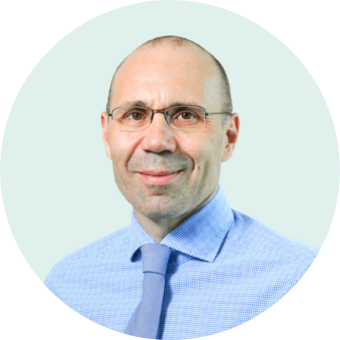
A dizzying rise in the US stock markets
Andres Viisemann, Head of LHV Pension Funds
The year 2024 turned out to be unexpectedly strong for financial markets, with the MSCI World Index, which tracks the performance of developed country stock markets, gaining 19.2%. This was primarily driven by an extraordinarily powerful rise in US stocks. Since the share of US companies in the World Index is nearly 74%, it is understandable why the global stock market index performed so well.
